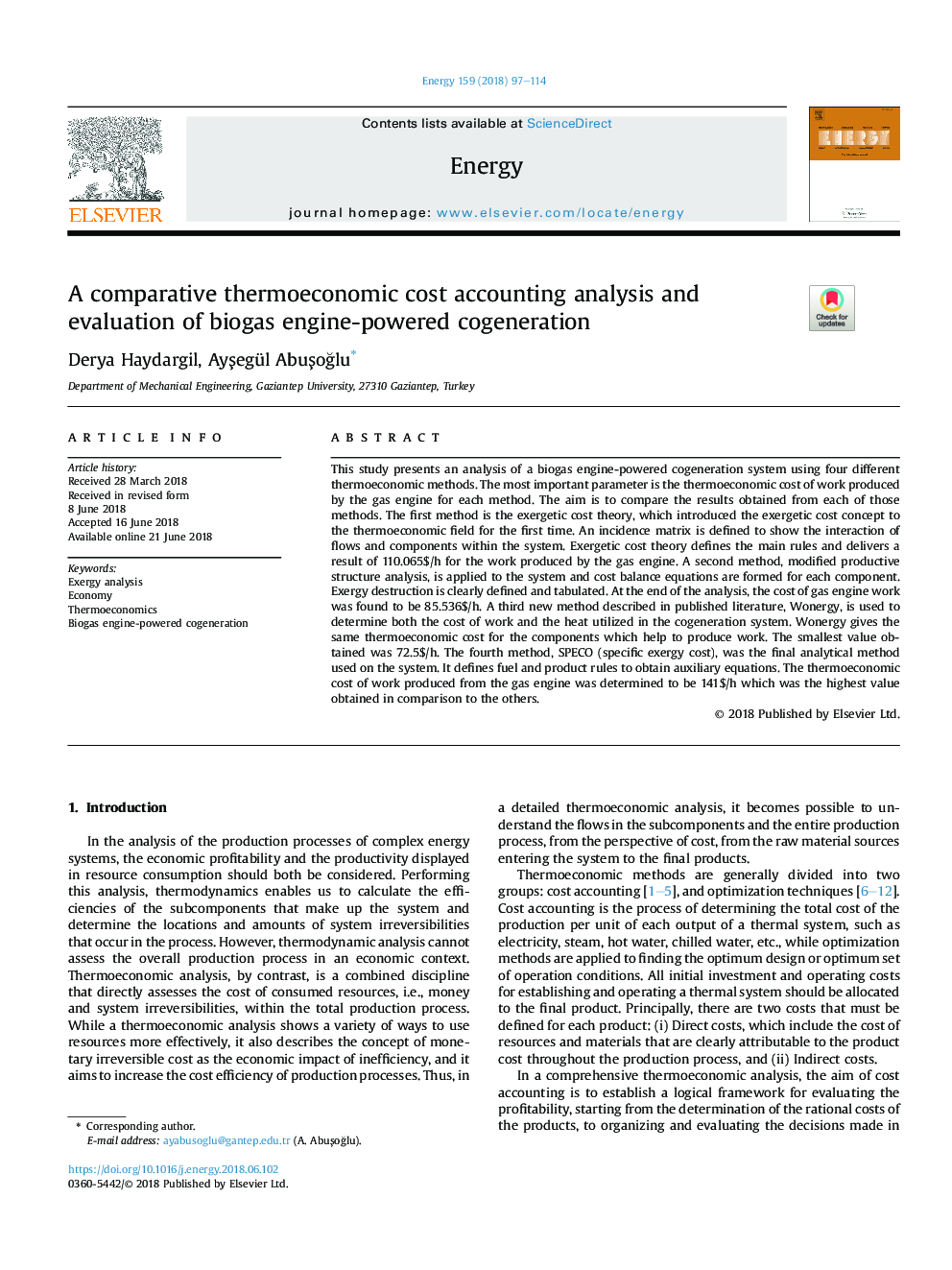| Article ID | Journal | Published Year | Pages | File Type |
|---|---|---|---|---|
| 8071044 | Energy | 2018 | 18 Pages |
Abstract
This study presents an analysis of a biogas engine-powered cogeneration system using four different thermoeconomic methods. The most important parameter is the thermoeconomic cost of work produced by the gas engine for each method. The aim is to compare the results obtained from each of those methods. The first method is the exergetic cost theory, which introduced the exergetic cost concept to the thermoeconomic field for the first time. An incidence matrix is defined to show the interaction of flows and components within the system. Exergetic cost theory defines the main rules and delivers a result of 110.065$/h for the work produced by the gas engine. A second method, modified productive structure analysis, is applied to the system and cost balance equations are formed for each component. Exergy destruction is clearly defined and tabulated. At the end of the analysis, the cost of gas engine work was found to be 85.536$/h. A third new method described in published literature, Wonergy, is used to determine both the cost of work and the heat utilized in the cogeneration system. Wonergy gives the same thermoeconomic cost for the components which help to produce work. The smallest value obtained was 72.5$/h. The fourth method, SPECO (specific exergy cost), was the final analytical method used on the system. It defines fuel and product rules to obtain auxiliary equations. The thermoeconomic cost of work produced from the gas engine was determined to be 141$/h which was the highest value obtained in comparison to the others.
Related Topics
Physical Sciences and Engineering
Energy
Energy (General)
Authors
Derya Haydargil, AyÅegül AbuÅoÄlu,
